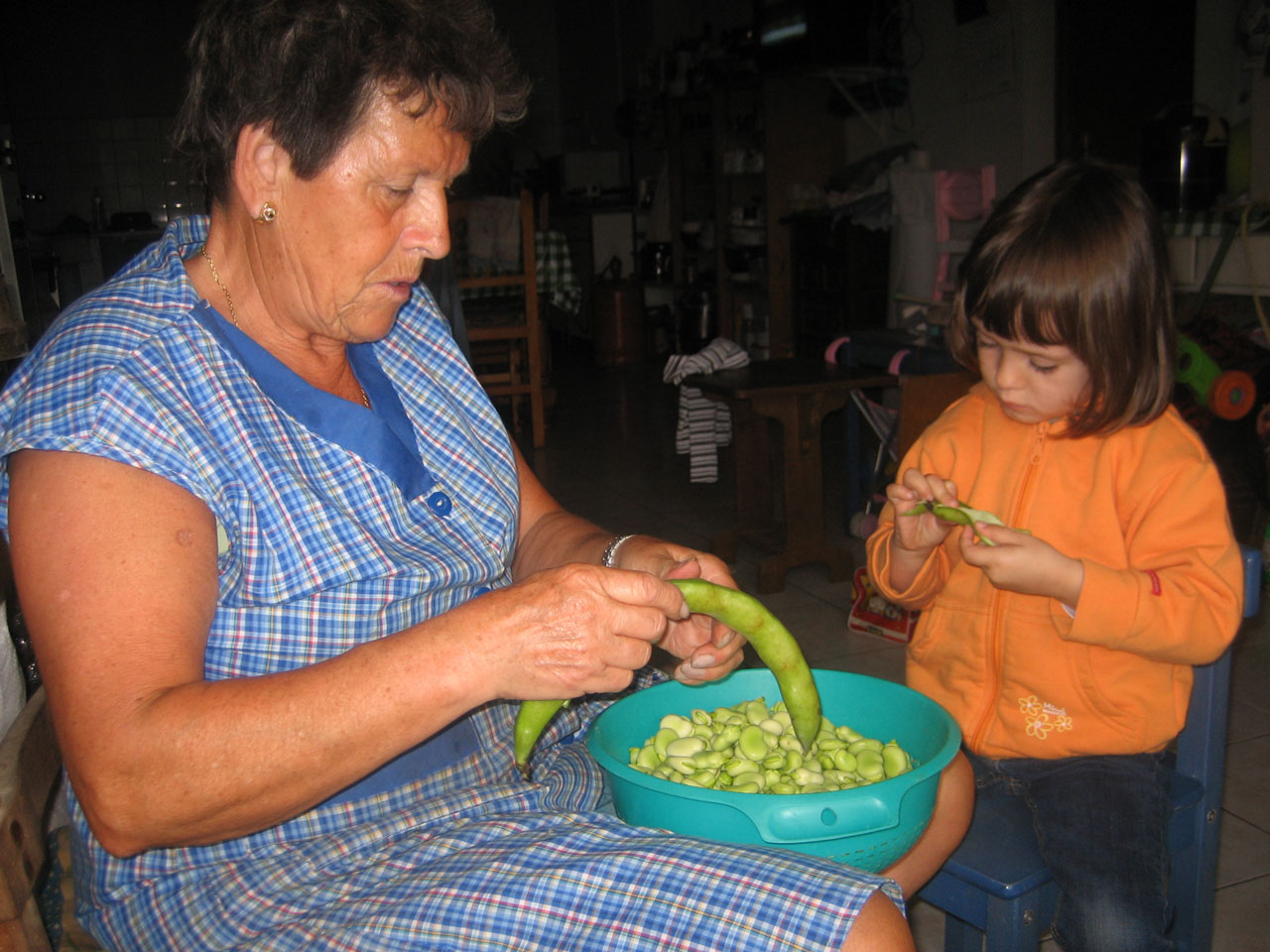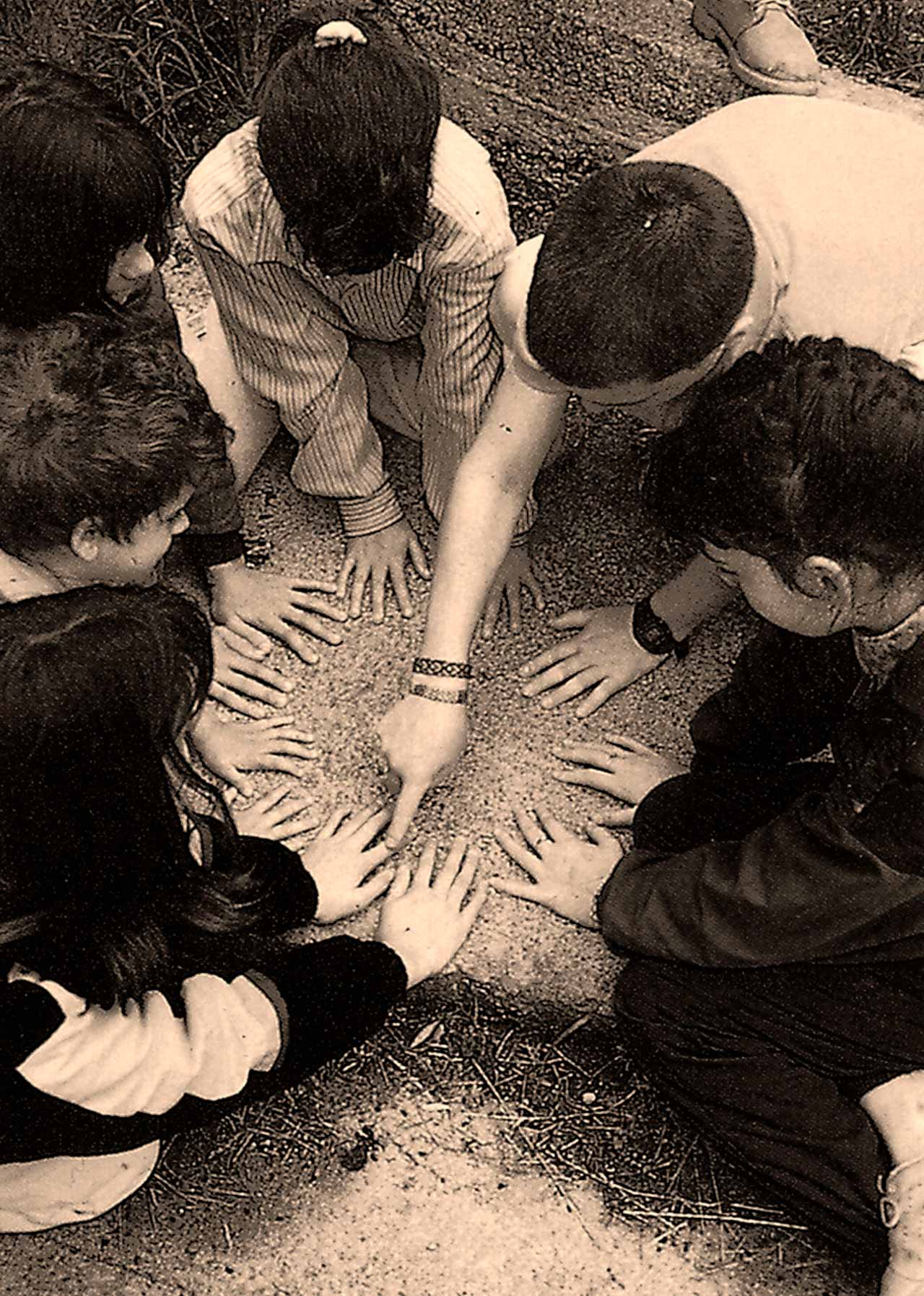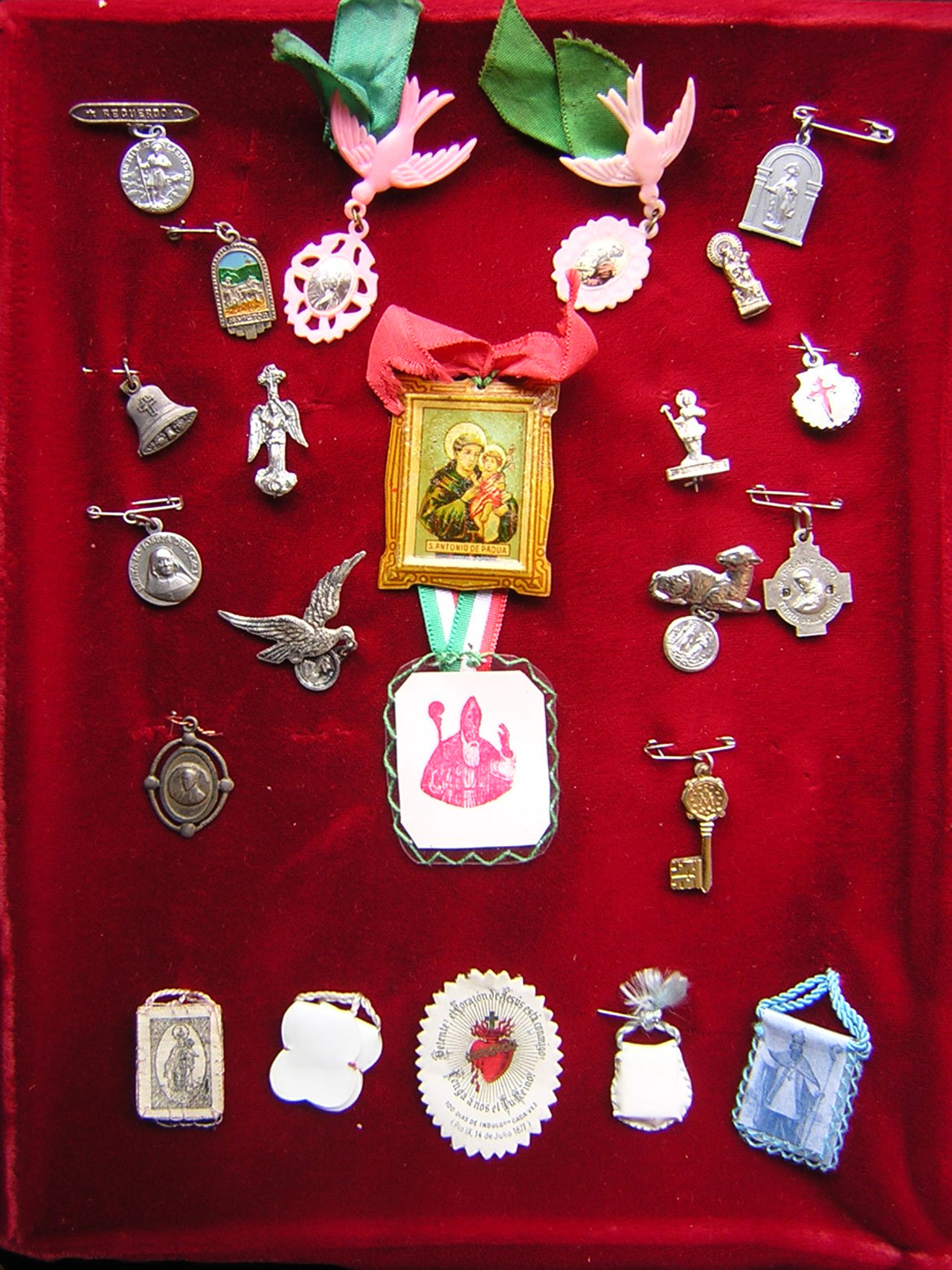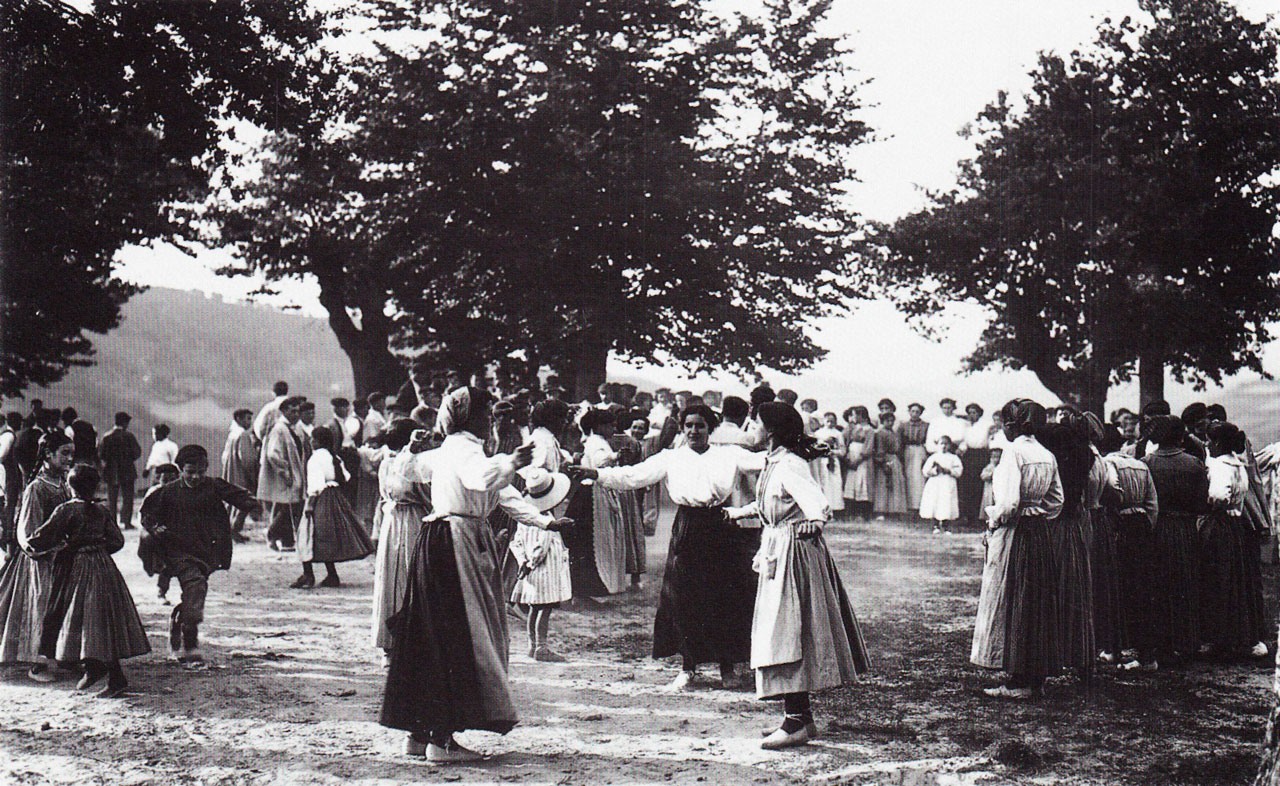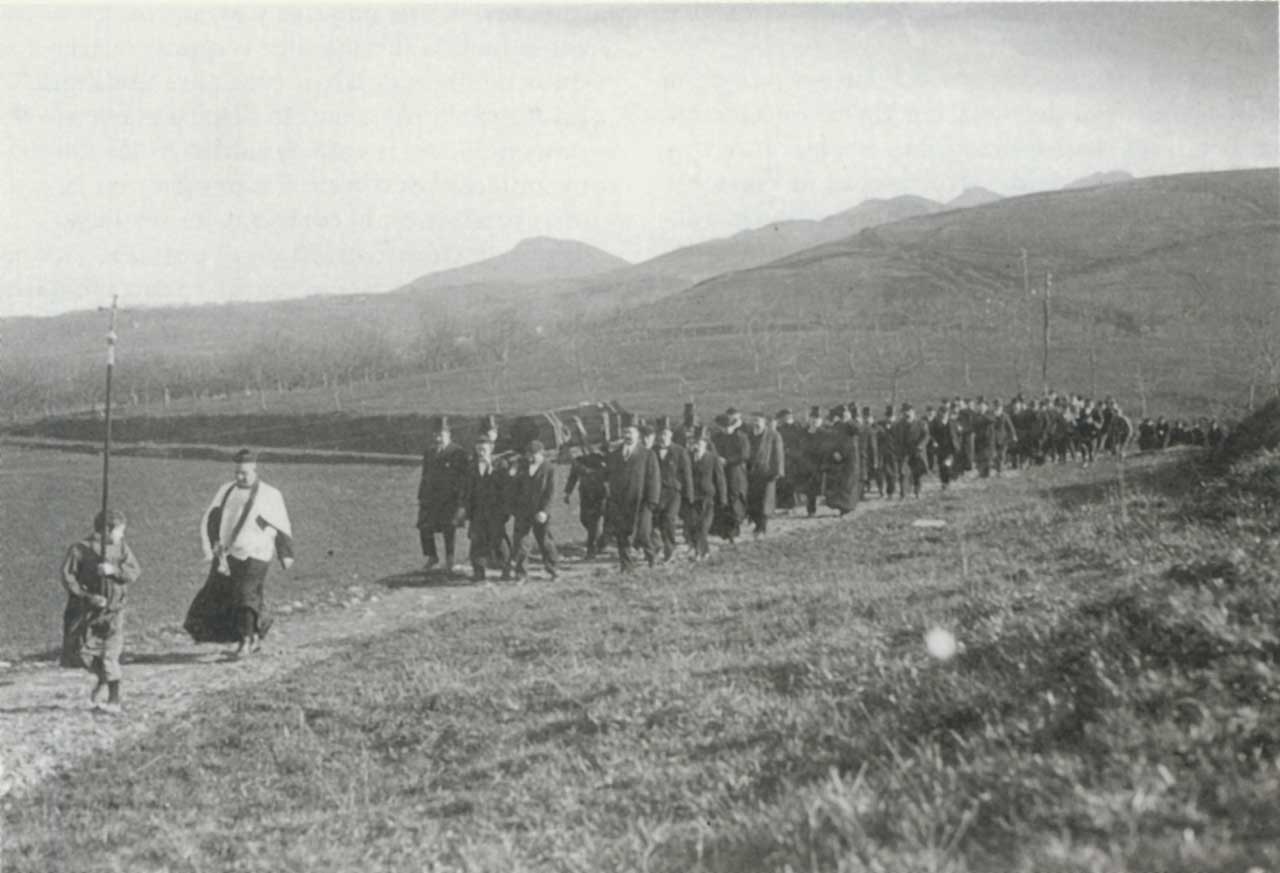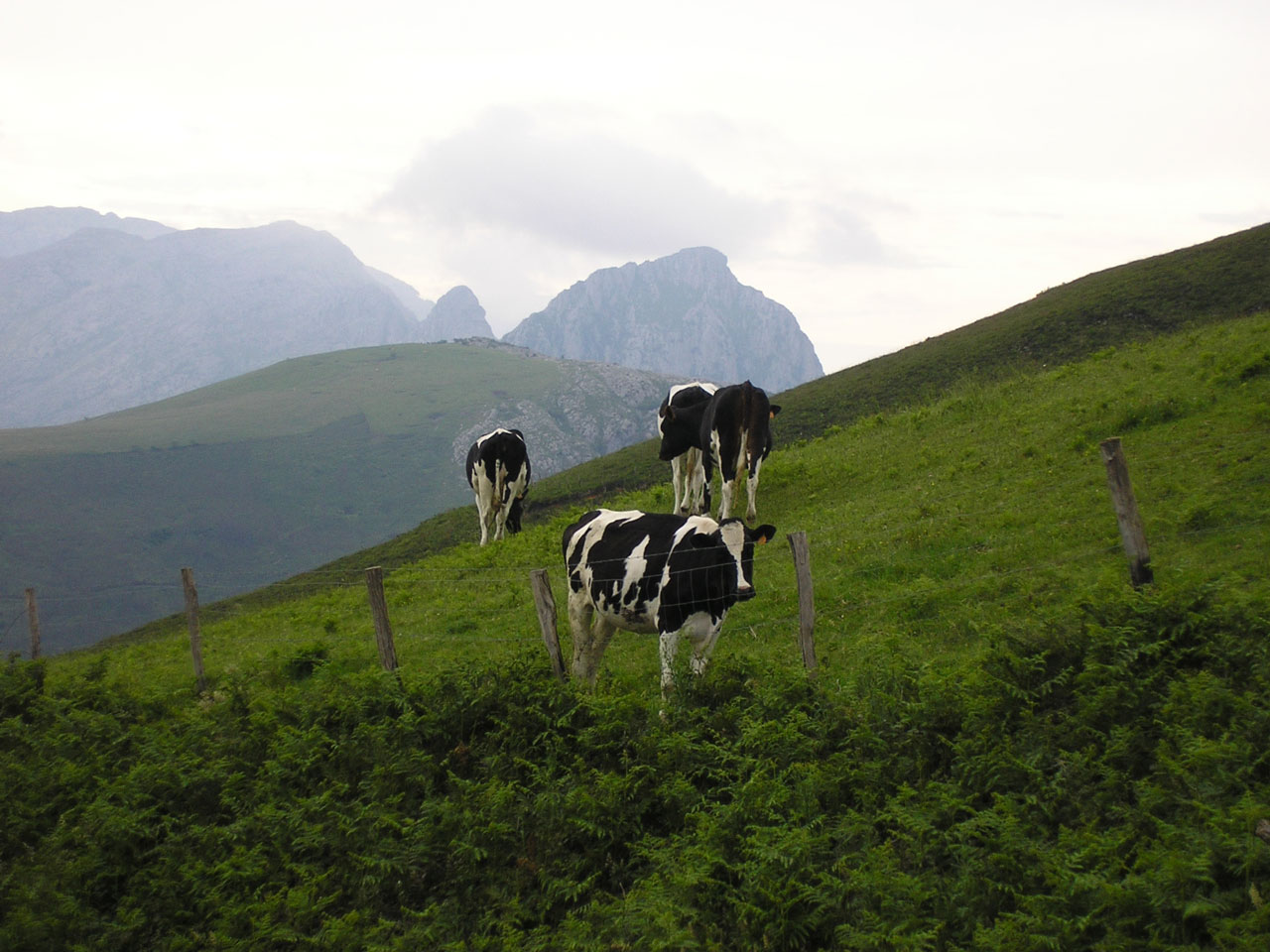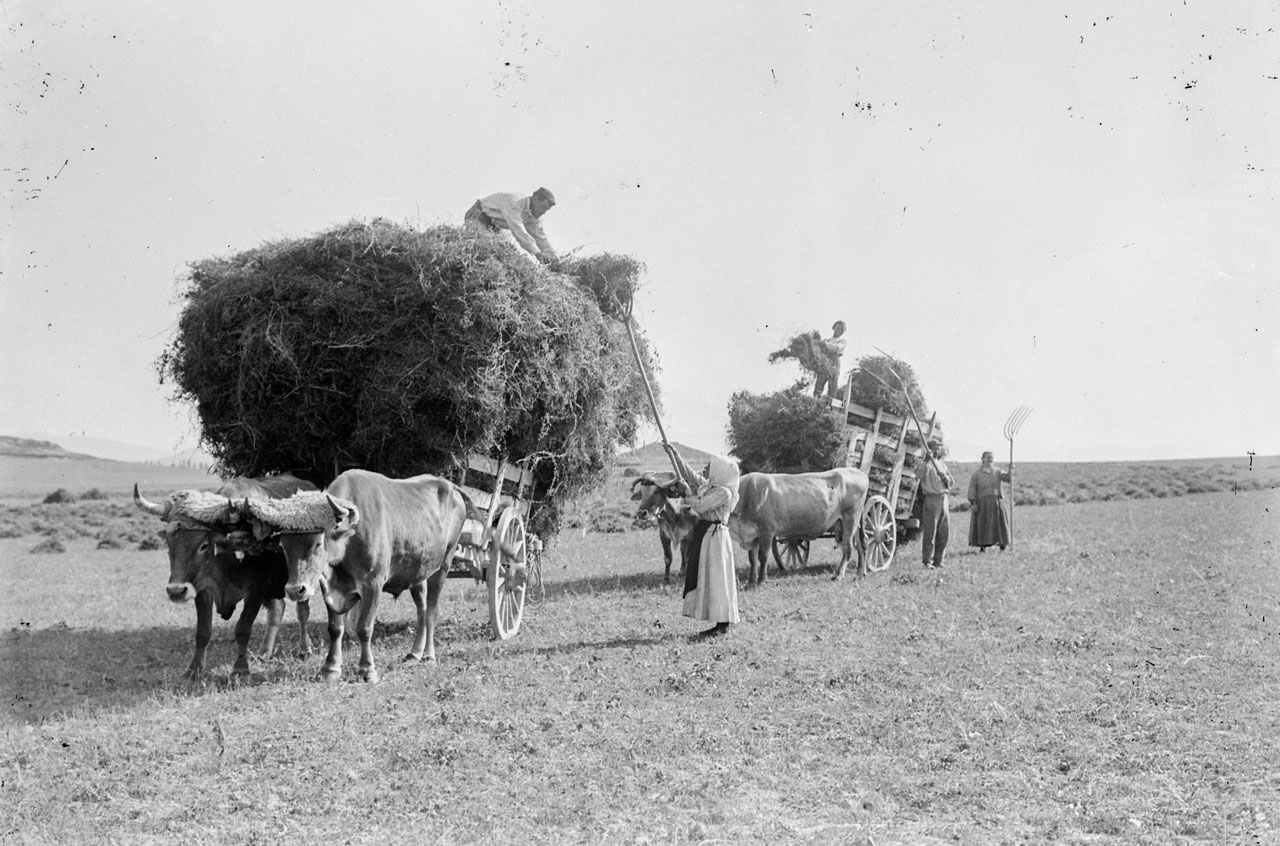Main Page/en
De Atlas Etnográfico de Vasconia
Revisión del 15:00 10 feb 2020 de Admin (discusión | contribuciones)
Zurututza Farmhouse. Zeanuri (B), c. 1925. Source: Labayru Fundazioa Photograhic Archive: Felipe Manterola Collection.
House and Family in the Basque Country


House and Family in the Basque Country
Etxeko habeak, etxeko berri. A fool knows more in his own house than a wise man in another’s.
Family Diet in the Basque Country


Family Diet in the Basque Country
Beans and broad beans were the most widely grown legumes and were traditionally an important part of the diet.
Children’s Games in the Basque Country


Children’s Games in the Basque Country
Obabatxua lo ta lo, zuk orain eta nik gero; zeuk gura dozun orduren baten, biok egingo dogu lo ta lo. Lullaby
Traditional Medicine in the Basque Country


Traditional Medicine in the Basque Country
No distinctions between beliefs and empirical cures in the traditional mindset.
Dancing during patronal celebrations. Zeanuri (B), 1922. Source: Labayru Fundazioa Photograhic Archive: Felipe Manterola Collection.
Rites from Birth to Marriage in the Basque Country


Rites from Birth to Marriage in the Basque Country
Young men and women would meet during the Sunday stroll, dances and pilgrimages.
Funeral Rites in the Basque Country


Funeral Rites in the Basque Country
There were specific paths to carry the corpse from the house of the deceased to the church and the cemetery.
Cattle on common pastures. Carranza (B), 2007. Source: Luis Manuel Peña, Etniker Euskalerria Groups.
Livestock Farming and Shepherding in the Basque Country


Livestock Farming and Shepherding in the Basque Country
Communities in areas where livestock has been the fundamental basis of their way of life consider Saint Anthony Abbot as the main protector of the health and fertility of the animals.
Agriculture in the Basque Country


Agriculture in the Basque Country
Both animal and human power had a decisive impact on the way of working and on the crops until the introduction of modern machinery.

